|
Keynote speakers
Attitudes, norms and the art of visitor management
Professor Thomas A Heberlein, University of Wisconsin, USA and the Swedish University of Agricultural Sciences
Thomas Heberlein is an environmental social psychologist who has had a long interest in outdoor recreation. He is the co-author of Carrying Capacity in Recreation Settings (with Bo Shelby) and is currently completing Navigating Environmental Attitudes to be published by Oxford University Press. Heberlein began studies on National Park visitors to establish social carrying capacity for rafting on the Colorado River in the Grand Canyon. He and Jerry Vaske developed measures of crowding and visitor satisfaction that have been used in hundreds of studies. Heberlein was visiting professor in the Department of Tourism Studies at Mid-Sweden University and a guest Researcher at The European Tourism Research Institute. He has served on three U. S. National Research Council Committees related to visitor management and monitoring and has taught at the National Park Service Albright Training Academy. Heberlein is a Professor Emeritus in the Department of Community and Environmental Sociology at the University of Wisconsin-Madison (USA) and Professor in the Department of Wildlife, Fish and Environmental Studies at the Swedish University of Agricultural Sciences. In his lecture, Heberlein will focus on how we deal with attitudes and attitude studies in our efforts to understand visitors and advise managers. Book release: The presentation by our keynote speaker Professor Thomas Heberlein will be based on his new book Navigating Environmental Attitudes to be released August 27 by Oxford University Press (Read more) Copies of the book will be available at the conference. |
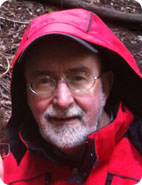 |
Current and future issues in natural area tourism
Associate Professor Susan Moore, Murdoch University, Australia
Associate Professor Susan Moore leads the Nature Based Tourism Research Group at Murdoch University, Western Australia. Her expertise is natural area tourism, protected area management and biodiversity conservation policy. She has 150 publications including journal articles, books and reports and has successfully led more than 30 research projects delivering outputs to industry, government and non-government organizations, and the Australian Research Council. She currently leads the national ARC Project on National Park Positioning and Visitor Loyalty, the Policy Research Program for the Western Australian Centre of Excellence for Climate Change and Tree Health, and she leads the Social and Institutional Futures Program within the Landscapes and Policy National Research Hub at University of Tasmania. Current honorary roles relevant to protected areas include Governor, World Wide Fund for Nature – Australia, and member, IUCN World Commission on Protected Areas. My talk with cover at least the following five complexities associated with natural area tourism. What is “natural” and does it matter? Is natural area tourism becoming mass tourism? Where might technology take us with our visitors and in our research? What progress have we made in adaptive management over the last decade and where to now And what do global issues such as population growth, climate change, poverty, water scarcity, peak oil and the global financial crisis mean for natural areas and their tourism? |
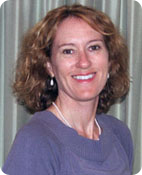 |
Managing difference in shared recreational space: understanding the role of the body, movement and emotion
Dr. Katrina Myrvang Brown, James Hutton Institute, Scotland UK and Centre for Rural Research, Norway
| Katrina Myrvang Brown is a senior researcher in human-environment relations at the interdisciplinary James Hutton Institute in Scotland. She has led and contributed to a number of projects relating to outdoor access and recreation, dealing with issues such as participation, benefits to economy and health, implementation of new legislation (the Land Reform (Scotland) Act 2003), commodification, and conflict management. A key goal of her research is to understand the role of formal and informal regulatory mechanisms – from law to cultural norms - in striking a balance between the health and social inclusion benefits of outdoor recreation participation, and environmental and land management objectives. To explore outdoor recreation as an embodied and socially and geographically situated practice, Katrina and colleagues have developed innovative mobile and visual methods; in particular extending 'go-along' interviewing to include ‘headcam’ video techniques. In her presentation she will talk about how she has used these methods to explore the key spaces of encounter and ‘contact zones’ of outdoor recreation, focussing on the role of the body, movement and emotion in the crucial but often-contested choreography of sharing space across mobile and species difference. This will be illustrated with reference to conflicts surrounding mountain biking and wildlife disturbance. |
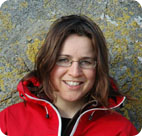 |
Outdoor recreation in change – What about Sweden?
Professor Klas Sandell, Karlstad University, Sweden
Klas Sandell has a B.A. in Human Geography, a Ph.D. in Water and Environmental Studies and is now Professor in Human Geography at the Department of Geography and Tourism, Karlstad University, Sweden. Also he has a background as a teacher in outdoor recreation at a folk high school and he has been a visiting professor at the Department of Sports, Leisure and Learning, Education in Arts and Professions at Stockholm University. His overall research focus is the interrelationship between development strategies and human relation with "nature" (in terms of landscape, views and practices) especially in terms of outdoor recreation and nature based tourism. Klas is also an editor and co-author of several wide spread text books in Sweden with regard to outdoor recreation, its history and practices and education for sustainability. In his presentation he will introduce some characteristics with regard to outdoor recreation and nature-based tourism in Sweden as well as highlight some themes that could be of special interest such as the right of public access and current political initiatives. |
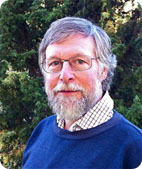 |
Values change the world
Secretary General Bi Puranen, World Values Survey association (WVSA)
The World Values Survey (WVSA) is a worldwide network of social scientists studying changing values and their impact on social and political life. From 1981 , the WVS in collaboration with EVS (European Values Study) has executed five waves of representative national surveys in 97 societies containing almost 90 percent of the world's population. These surveys show pervasive changes in what people want out of life and what they believe. At present the WVS is carrying out a sixth wave of surveys, that will cover at least 50 countries. Assoc. Professor Puranen will present results from this new wave. |
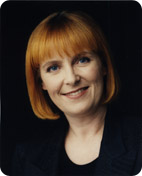 |
Challenges of visitor monitoring and management in protected areas
Director Rauno Väisänen, Metsähallitus Natural Heritage Services, Finland
Metsähallitus Natural Heritage Services (NHS) manages all the national parks and the other state-owned protected areas, wilderness areas, national hiking areas and public waters in Finland. Dr Väisänen has been the Director of NHS since 1995. He has a Ph.D. in zoology (1984) and long experience in the environment administration. He has been active in international organizations, e.g. WWF, IUCN and EUROPARC. In his presentation, Dr Väisänen will introduce the Finnish centralized way of monitoring and managing the national protected area network, good practices, efficient toolkit and the importance of international cooperation and feedback. He will bring to our focus the future challenges of recreation management, including understanding ecosystem services, capability of measuring benefits, and connection to national and international policies. |
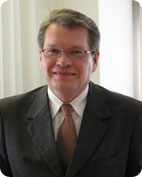 |
|
|
|



![]()